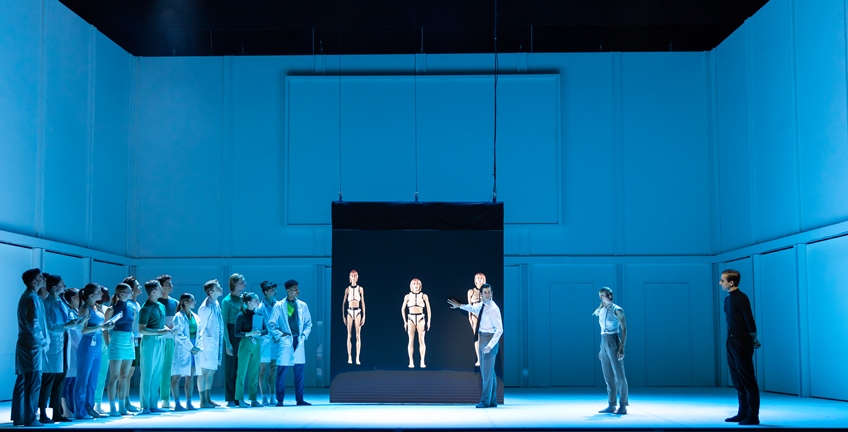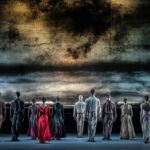Scottish Ballet’s Coppélia is not the classic ballet which premiered in 1870 but a 21st century update by directors and choreographers Morgann Runacre-Temple and Jessica Wright (collectively known as Jess and Morgs), who create dance film and interdisciplinary stage work.
They reimagine the story for today’s digital age. The ballet, which lasts 1 hour and 20 minutes and no interval, was a big success at the Edinburgh Festival in 2022.
The music is by Mikael Karlsson and Michael P Atkinson who incorporate many of Leo Delibes’ compositions. The score excites.
The production is a mixture of live dance performance and real-time filming. The cameraman is visible on stage. There is a big screen behind and above the dancers on to which his images are projected and transit into pre-recorded footage.
Jess and Morgs eschew 19th century ballet vocabulary and none of the ballet’s original movements are used. Their choreography is interestingly uncanny.

Dr Coppelius, inventor and entrepreneur, is founder and CEO of NuLife in Silicon Valley and he has created a revolutionary piece of AI, which he hopes will be able to cross into our own material world. Thomas Edwards is excellent casting for the role. His personality, his movements, his mime and his facial expressions in close-up dominate the production.
Dr Coppelius has his own photographer, who is played by first artist Rimbaud Patron, who is also a professional photographer in real life and is Scottish Ballet’s photographer.
Swanhilda (Rishan Benjamin) has been turned into an investigative journalist. Franz, her fiancé, joins her on her visit to NuLife’s headquarters and laboratory. When Swanhilda finally finds Coppélia, she steps inside the machine in order to amalgamate with her. Her transformation creates a powerful moment.
When Franz (Evan Loudon) first sets eyes on the life-size Coppélia, he has no idea that she is a mechanical doll. But then, the audience too is never allowed to be absolutely certain who on stage is real and who is AI in Scottish Ballet’s version.
The ballet is bookended by Swanhilda’s and Franz’s love for each other. Will their sex life ever be the same again? Would you want to make love to a robot?
To learn more about Robert Tanitch and his reviews, click here to go to his website 




